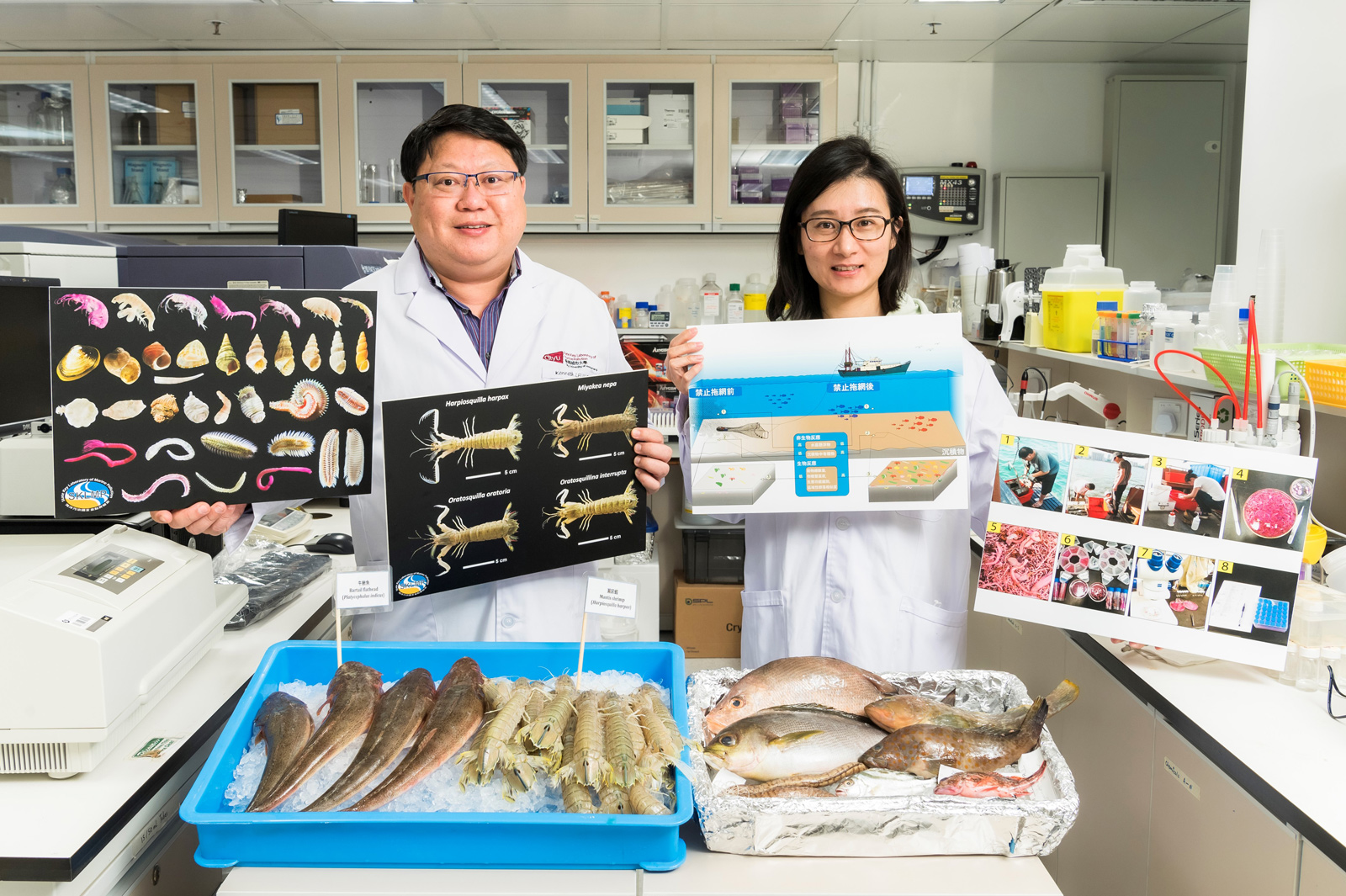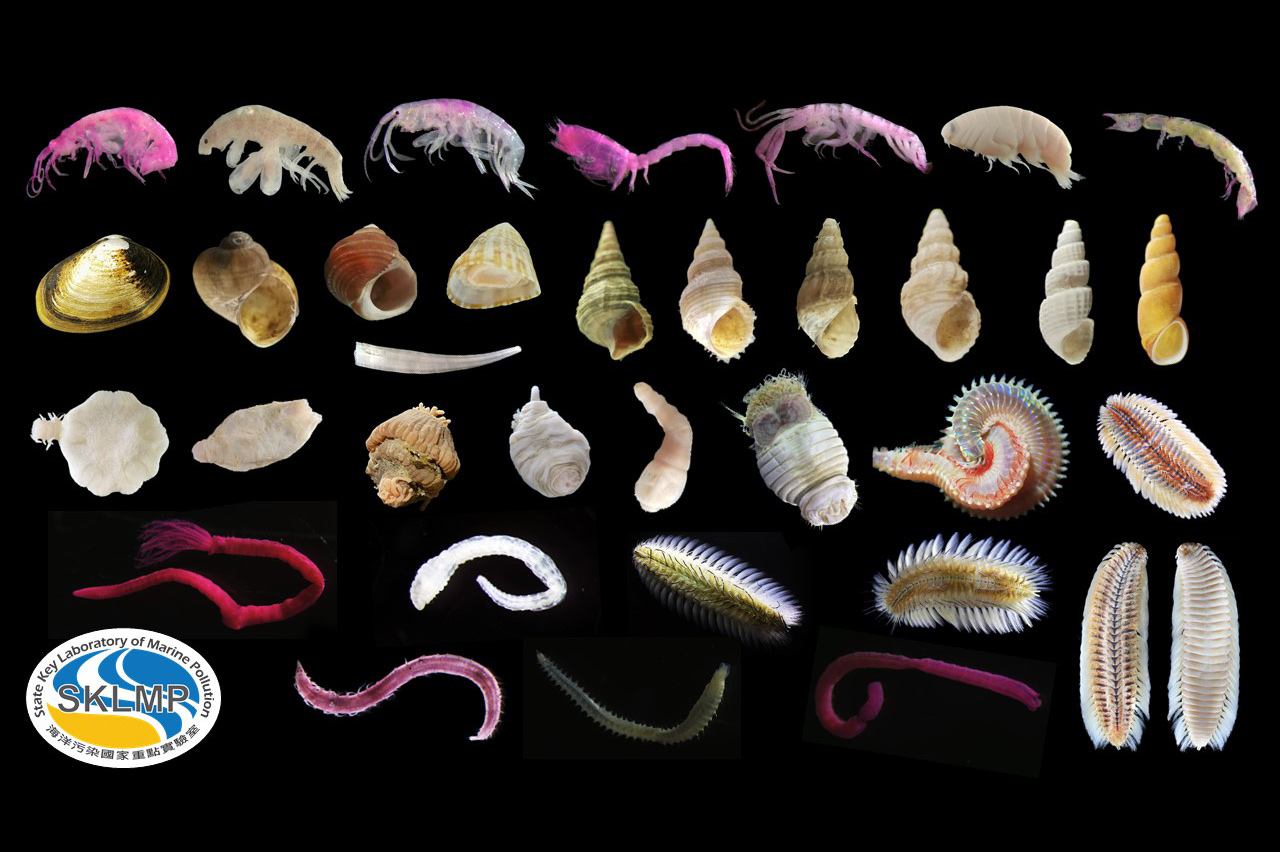Trawl ban boosts marine biodiversity in local waters

The prohibition of trawling activities in the Hong Kong marine environment for two and a half years has significantly improved biodiversity, an inter-university study led by City University of Hong Kong (CityU) has found.
The results of this study suggest the fishing ban has reduced pressure on the marine environment from fishing and has led to substantial increases in the richness of species and the abundance of benthic marine organisms, i.e. those usually at the bottom of a body of water. The average number of benthic species has increased 335% while the number of predatory crabs has increased 600% in eastern waters and a whopping 1,338% in western waters.
The research team led by Professor Kenneth Leung Mei-yee, Director of the State Key Laboratory of Marine Pollution at CityU and Chair Professor in the Department of Chemistry, collected sediment samples with five replicates from each of 28 locations in Hong Kong waters in June 2012 (prior to the trawl ban) and two and a half years after the trawl ban, and then examined for physicochemical properties and macro-benthic animals.
The results revealed significantly lower levels of suspended solids (SUS) in the water column and significantly higher levels of total organic matter (TOM) in the sediments two and a half years after the ban. Compared to the survey conducted in 2012, the average amount of SUS was reduced by 1.36 mg/L (~25%) in the water column while the average amount of TOM increased by 1.6 mg/L (~29%) in surface sediment after the ban, indicating decreased disturbance on marine benthic habitats.
In addition, there were significant increases in abundance and species richness of benthic organisms after the ban. The average number of benthic species found in sediment samples increased from 27.5 to 48.3 species (~176%). In each 0.5 m2 of the sampling area, the average amount of all benthic organisms found in sediment samples increased from 253 to 848 individuals (~335%). Such increases were more prominent in polychaete worms and bivalves.

Parallel studies revealed that fish and crustacean stocks in eastern and western waters in Hong Kong had recovered after comparing crustacean and fish diversity before (2004 and 2012) and after the trawl ban (2013 to 2016). The results showed that in each square kilometre of the area sampled, the average number of predatory crabs increased from 86 individuals in 2004 to 516 (600%) from 2015 to 2016 in eastern waters, while the number in western waters increased from 157 individuals to 2,101 (~1,338%) individuals. Similarly, the number and weight of all fishes in total or all predatory fishes increased in eastern and western waters after the trawl ban.
The research team will repeat the survey in the summer thanks to a research grant worth HK$1.2 million from the Environmental Protection Department. The aim is to check for any further improvements to marine benthic ecosystems and fisheries resources.
“Our results are highly encouraging and supportive of the Hong Kong SAR Government’s trawl ban policy. Gratifyingly, Hong Kong has provided such a good example of successful management intervention for promoting sustainable fisheries development and marine biodiversity conservation. We hope that other countries, especially those in the tropics, will refer to our study and join forces to prohibit destructive trawling activities,” said Professor Leung.
Funded by the Research Grants Council with a Collaborative Research Fund amounting to HK$7.3 million, the study reported in this article was conducted in June 2015 after the territory-wide trawl ban was implemented by the Hong Kong SAR Government on 31 December 2012. Given the large number of samples for species identification and numeration, the study was only recently completed. The research findings were recently published in Communications Biology under the title “Recovery of tropical marine benthos after a trawl ban demonstrates linkage between abiotic and biotic changes”.
Professor Leung and Professor Qiu Jianwen from Hong Kong Baptist University (HKBU) are the co-corresponding authors of the paper. Wang Zhi, a PhD student from HKBU, is the first author. Other collaborators are from Lingnan University and the University of Hong Kong.
